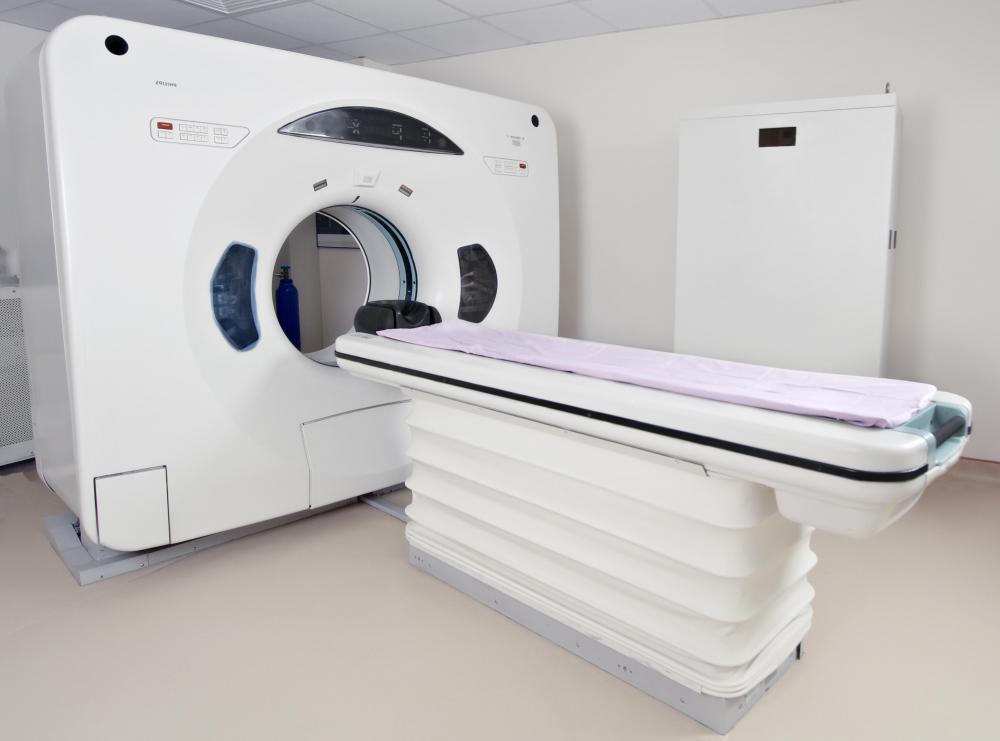At WiseGEEK, we're committed to delivering accurate, trustworthy information. Our expert-authored content is rigorously fact-checked and sourced from credible authorities. Discover how we uphold the highest standards in providing you with reliable knowledge.
What Should I Expect from a Brain MRI?
Magnetic Resonance Imaging, or MRI, is a diagnostic medical technique that can provide a three-dimensional image of a scanned section of the body. A brain MRI is often performedto get clear pictures to determine or exclude possible medical conditions that are affecting the area. Brain MRIs are generally painless but may cause some discomfort for patients with claustrophobia.
There are two main types of MRI machines used to perform a brain MRI. A standard machine will look like a long, thin tube. The patient lies down on a rolling gurney and slides forward into the machine. An open MRI machine is similar, but has open sides instead of a tube. For those with severe claustrophobia, it is good to ask if the test can be conducted on an open MRI machine. A doctor may also prescribe a sedative for those with severe anxiety about enclosed spaces.

Some MRI scans require a patient to get an injection of a solution that will temporarily stain the scanned area, making the contrast easier to see. Be sure to mention any known medical or food allergies, as the contrast solution may contain allergens. Braces, prosthetics, pacemakers, and metal pins in the body can react badly with an MRI, since the machine is essentially a giant magnet. Be sure to give the doctor a full medical history so he or she can determine any potential issues with a brain MRI.

During the test, it is important to lie completely still and follow all directions. The doctor or MRI technician is generally in a control room, but most MRI machines have a microphone system that allows both the patient and the doctor to communicate. When the test is ongoing, the patient may hear clicking sounds that indicate the scans are being taken. A feeling of increased warmth in the head is typical, but pain, dizziness, or nausea should be reported immediately. Generally, a brain MRI may take anywhere from 30 minutes to two hours.

A brain MRI can be done for many reasons, both mild and serious. People with persistent headaches, dizziness or blurred vision, or a past history of brain cancer may have a brain MRI simply to identify the root of a problem. Some conditions that can be diagnosed with a brain MRI include cancer, aneurysms, blood vessel defects, hydrocephaly, meningitis, or damage to the optic nerves. A doctor may also order an MRI after a severe injury or car accident to check for intracranial bleeding or other forms of brain damage.
AS FEATURED ON:
AS FEATURED ON:


















Discussion Comments
My doctor ordered a MRI of my head and neck, with and without contrast. The radiologist did the MRI without contrast and then said he did not need to do it with the contrast. When I asked the tech when my doctor would have the results, she said 24-48 hours and if I didn't hear from my doctor within that time frame, I need to call my doctor.
My question is, why would they not do the contrast when my doctor ordered it? And why would my doctor order it if it wasn't needed? Should this worry me?
Post your comments